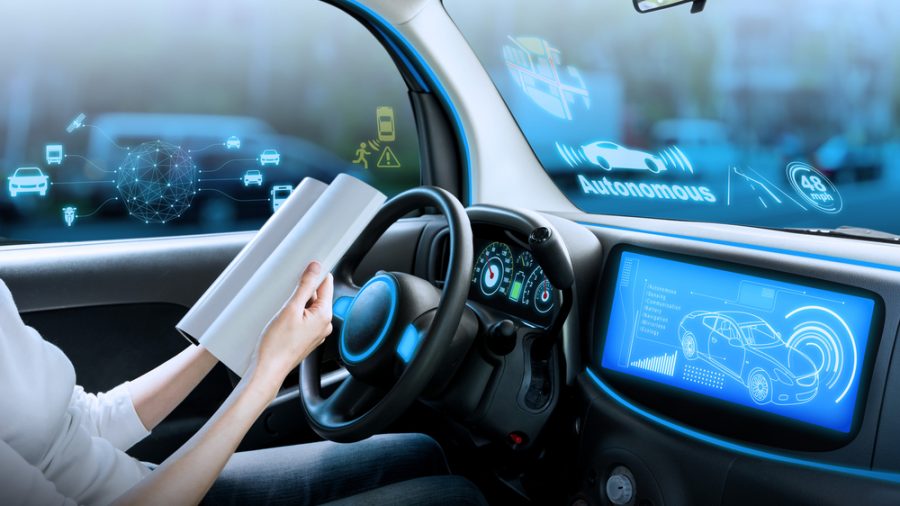Driverless cars are going to free us up. No more tedious driving tasks. But what does it really mean to give up control? We don’t know. In fact, we could be giving up our autonomy in more ways than one.
Autonomous but connected
You might think you control your computer. Every computer has a unique IP address, which means you can be traced. So much of what you do can be tracked and stored. For example, advertisers serve ads that match your web searches, posts or emails. Authorities track your financial dealings.
Driverless vehicles are going to be highly sophisticated computers on wheels. They are designed to be connected all the time because that’s how they function safely. Safety is paramount.
But who and what will your vehicle be connected to? There’s quite a list:
- Manufacturers will know location, road conditions, temperature, performance
- Governments will know location, purpose, destination and use for predictive analytics, defence
- Smart motorways and traffic lights will slow down, manage traffic flows, suggest detours
- Insurers will know state, location, speed, variation of cover and even instant loss of cover.
While the vehicle is autonomous – it drives itself – is it really autonomous if external sources control it? Meanwhile, the occupant of that vehicle is subject to the same external controls.
What about freedom?
Until recently, owning a vehicle was the ultimate symbol of freedom and young people were keen to learn to drive. They saw cars as opportunities to go their own way, on their own time. In fact, manufacturers of sports cars and SUVs still keep pushing that emotive idea of being able to “go anywhere”.
Of course, driverless cars will be able to go anywhere but the authorities and systems will know their every move. Not only that, they will be able to slow, redirect or stop them completely.
Under the guise of safety – always the primary message – every driverless car will give up control to external powers.
All look the same
The theme of control continues even in the design of these vehicles. This is because they all have to behave in similar ways to work in harmony with each other.
One vehicle can’t accelerate faster than the others because it has to travel smoothly along smart highways. Their brakes have to respond in exactly the same way. They all carry the same sensors, the same regulated communication systems.
As one commentator noted wryly, current concept designs even look boringly similar. They all have low stance, wheels flush with the body, glass roof, funky grilles and fishnet exterior lighting.
The only possibility for differentiation seems to be inside. But the interiors of current models tend to resemble bland lounge rooms or, worse, conference centres. Audi snootily claims its concept car has the “luxurious ambiance of a first-class airline cabin”. As if we didn’t have enough screen time, every driverless car will be a moving hub of entertainment.
Highly regulated
Governments all over the world are determined to be first to accomplish the complex task of regulating driverless vehicles. Australia is no different; even the states are in a race against each other.
Obviously driverless cars must be highly regulated to meet highly exacting safety standards. But tight regulation will limit the scope of function and design of the vehicle, as well as the freedom of the occupant.
Meanwhile, nobody is asking what the people who will sit in them actually want.
Into this highly regulated environment, a few technology companies will help us give up control of our data. Mega-companies like Google or Amazon want to own the data and will know more about your movements than anybody. This will be valuable and sellable. All profits from our data will go to owners of those data, software, batteries, or power generation.
Take back control
Have governments or manufacturers considered what it means to be an occupant of a driverless car? Feeling safe or not is just the obvious part. Many articles just focus on the safety or lack of safety of these vehicles.
What will it be like to give up control of the vehicle and look at screens in the ambience of a moving conference centre? Does this sound like fun?
Psychologists say a sense of autonomy is vital for humans to flourish. One of the reasons why many people love driving is because it offers such a sense of autonomy. Who is going to want driverless cars if they take that away?
In reality, driverless cars are not and will not be autonomous at all. There are too many interests already taking control. What do you think of that?


your opinion matters: